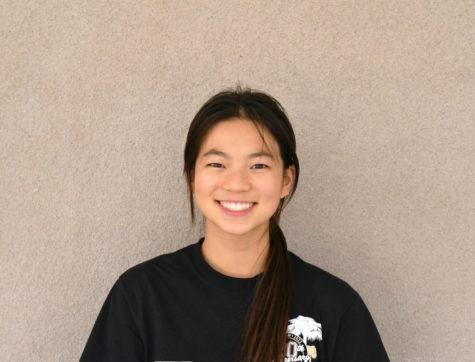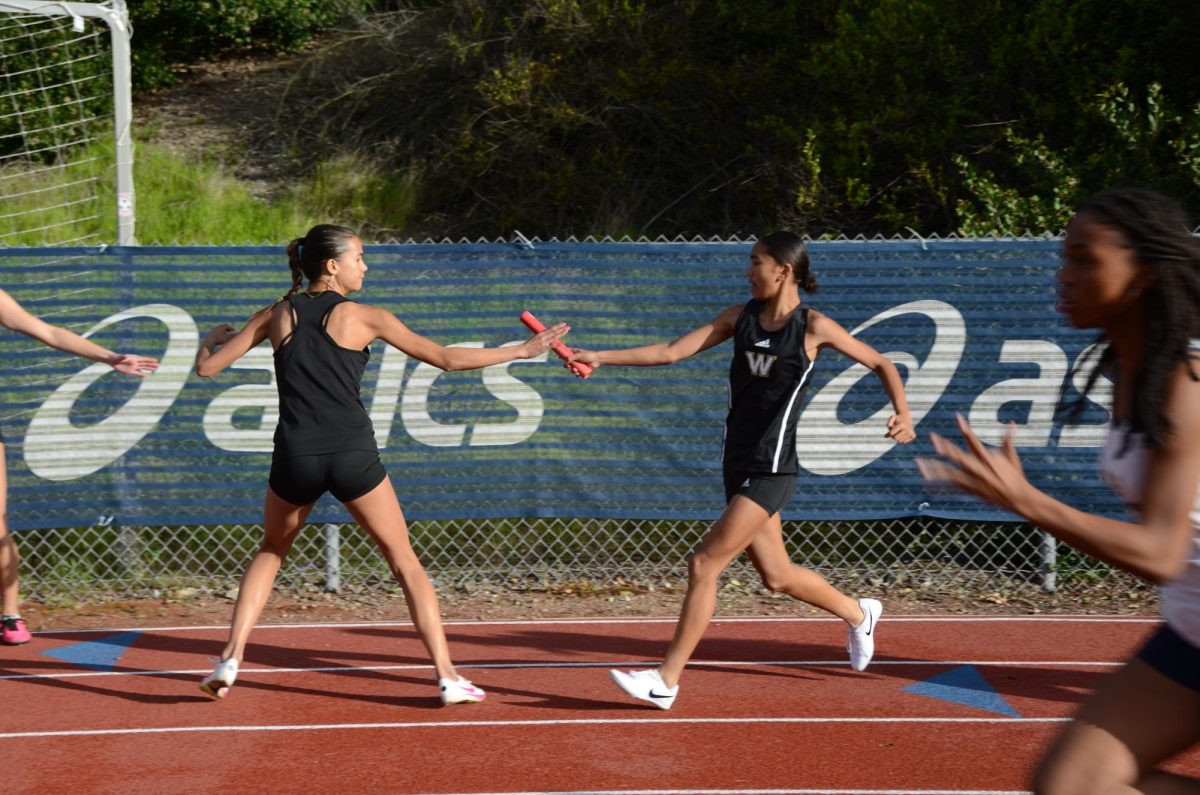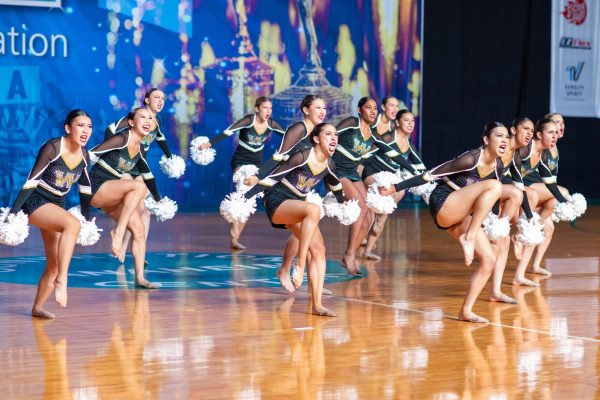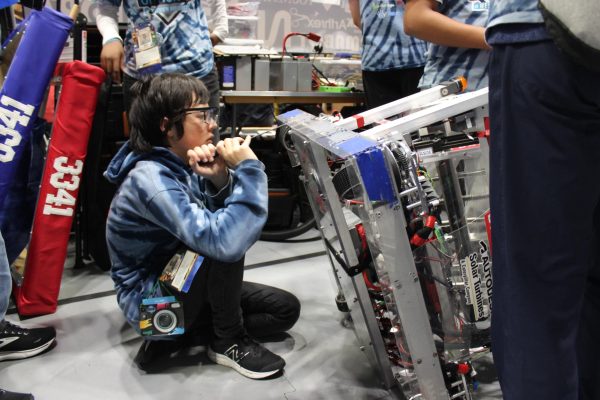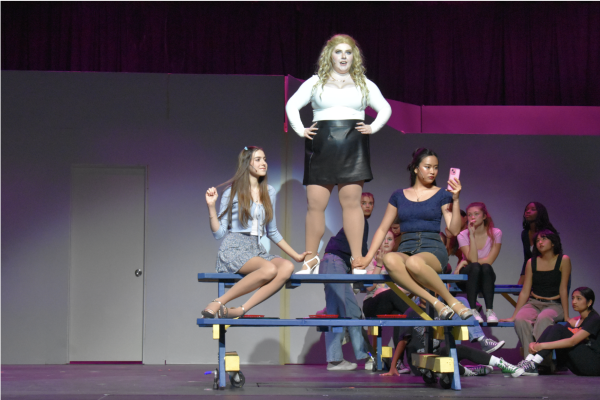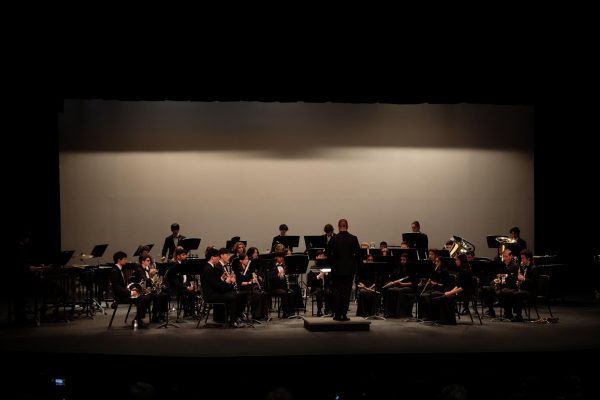Juniors form connections at Unity Day
October 8, 2021
Jessica Ong (11) was not excited for Unity Day. She had homework to do, AP classes to study for, and essays to write. It hadn’t even occurred to her that for the first time since November 2019, Westview was holding Unity Day, this time for juniors, on Sept. 28-29.
“My [older] brother said it wasn’t worth it,” Ong said. “I was just waiting to get over it.”
On the other hand, Suzanne Ye (12) was excited. She signed up to become a Unity Day facilitator to connect with the juniors she hadn’t gotten a chance to speak thoroughly with in her classes after being online last year.
“[I could] step aside from all the chaos at school,” she said, “and just reflect, not only about myself but about the people around me.”
The first activity was a mirror dance, where the juniors picked a partner and copied their dancing.
“It was ridiculous at the beginning,” Ong said. “I was really nervous and I kept looking behind me, but everybody looked so dumb, so I was just like ‘whatever,’ I’ll just do what I think makes me happy and makes the other person laugh. It really helped to show [me that] no one’s really judging [me].”
Guest speaker Keith Hawkins, who guided the Unity Day event, introduced an activity called “Take a Stand” where he asked personal questions about the students’ struggles.
“I didn’t feel comfortable standing because it’s not really stuff I like to share with people, but just seeing other people stand up [during Unity day], I didn’t know that a school like [Westview] could have people that had such hard problems—people that had problems like mine,” Ong said. “It was just nice to see I wasn’t alone and a lot of times I think you feel alone, but it’s not the case.”
Ye also would never have expected other students to be struggling with so many personal issues.
“It tells us not to judge anyone based on what you think they are at school, because you don’t know what they’re going through or what type of pain or hurt they’re feeling inside,” Ye said.
However, though Unity Day is a mandatory event for all juniors, each student was free to disclose however much information they felt comfortable with.
According to Ye, Unity Day offered an opportunity for students to open up their personal lives about subjects not appropriate inside the classroom.
“There are things [people] want to tell everyone about [and Unity Day] left it up to the students whether or not they want to disclose any information,” Ye said.
As a Link Crew leader, Ye interacted frequently with students at school; however, Unity Day was different in many ways.
“Since the topics were so personal, the more open [juniors] shared more of their own personal struggles and empathized with the group more but other students provided more generic responses [to Hawkins’s questions],” Ye said.
Getting students to open up was difficult, but the facilitators set the tone for the activities by sharing their personal struggles first. Even though the exercises were similar, Ye’s experience as a facilitator was distinct from her attendance sophomore year.
“The biggest difference was the location,” Ye said. “When we were inside [the gym], there was a more intimate connection with our groups. But when we were outside on the field, [there were] a lot of outside noises. That was the big thing, but everything else was the same as sophomore year.”
In another activity, each person in Ye’s group was given a stereotype, a label that they held up to their forehead.
“Everyone would treat each other according to their label,” Ye said. “It’s a very toxic mindset, especially in a school setting. We’re all trying to fit in, trying to find our place, and judgment is very prevalent [within] teenagers.”
Interacting with the juniors during Unity Day further opened Suzanne’s eyes to Westview’s diverse student body.
“People are actually so strong,” Ye said. “They go through so much but they overcome it. And it really brings everyone together and shows [us] that we’re all human.”
For the final activity, Hawkins asked both the facilitators and the juniors to pass around compliments on a sheet of stickers.
“We would just go around sticking them on each other’s bags and the aspect of hugging each other was very special,” Ye said. “As cheesy as it sounds, receiving these small compliments from people I never talked to was a really sweet gesture that really brightened [my] day.”
Ong also hadn’t expected to receive so many stickers either.
“People that I didn’t think knew about me or cared about me came and gave something to me,” Ong said. “I’d give them to them and I’d recognize things that I appreciate about them that I had previously [hadn’t] thought about.”
As a result of the experience, Ong said she isn’t as closed off to people anymore.
“I don’t just look at [my peers] in a very superficial way,” Ong said. “If somebody is rude to me, I now have an understanding that something else [could be] going on that may be causing them to act this way and not to use one first impression to dictate my understanding of who they are as a person.


